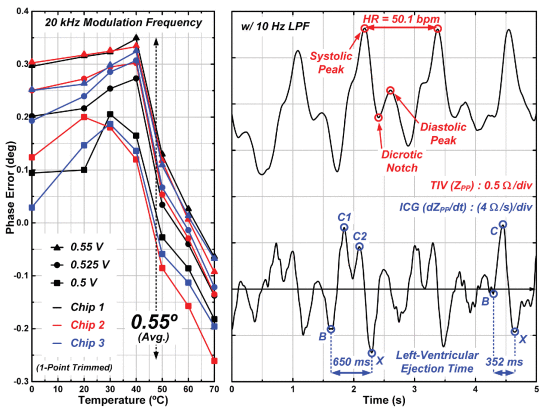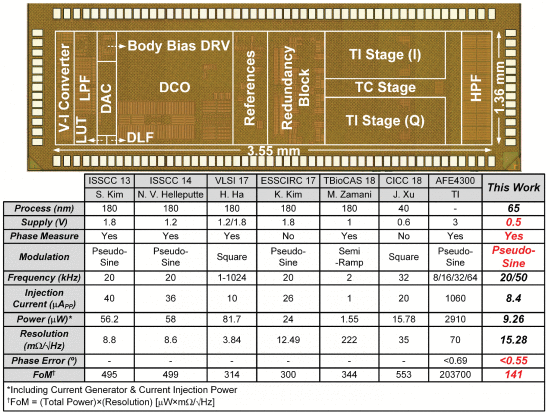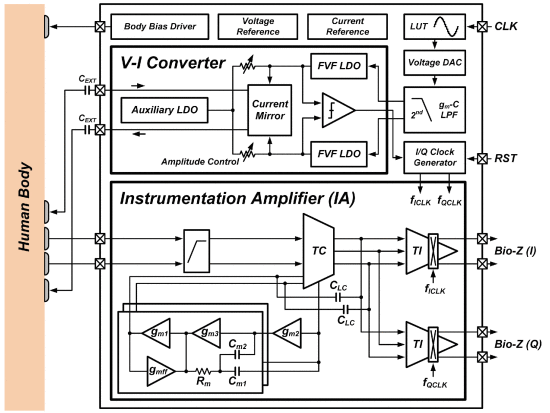GLY: Lowest-Supply Bio-Impedance Sensor IC
본문
Overview
Continuous blood-status monitoring by thoracic impedance or impedance phase measurement [1] is critical in reducing chronic heart failure (CHF) because the symptoms of deterioration are not recognized by patients, thus preventing timely treatment. Therefore, a wearable/implantable bio-impedance (Bio-Z) sensor is required for ambulatory patients to detect early signs of deterioration for appropriate intervention in proper time. Continuous monitoring requires ultralow-power consumption (<;10μW) and it requires the high resolution (<;0.1Ω) to detect small impedance variations [2]. Prior Bio-Z sensor ICs [2-4] do not satisfy these requirements simultaneously because the resolution depends inversely on the power consumption. Furthermore, previous Bio-Z sensors have a large phase error that is unable to accurately (<;1°) and continuously measure phase due to the square-wave modulation scheme of the current generator [3], resulting in intolerable measurement errors [2], or the supply and temperature variations of measurement accuracy due to the limited bandwidth (BW) of readout [2]. Although the pre-demodulation [3] technique can relax BW requirement, conversion loss of sine to square wave demodulation causes SNR degradation by 2/π times, leading to 2.47× increased power consumption.



Features
- 0.5V Supply Operation
- Lead-Compensated TC Stage
- LDO-Based V-I Converter
Related Papers
- ISSCC 2019 [pdf]